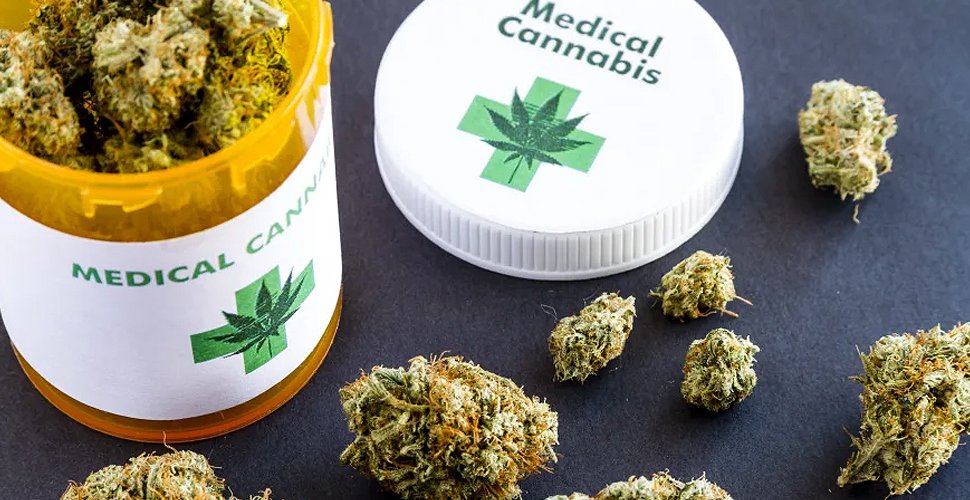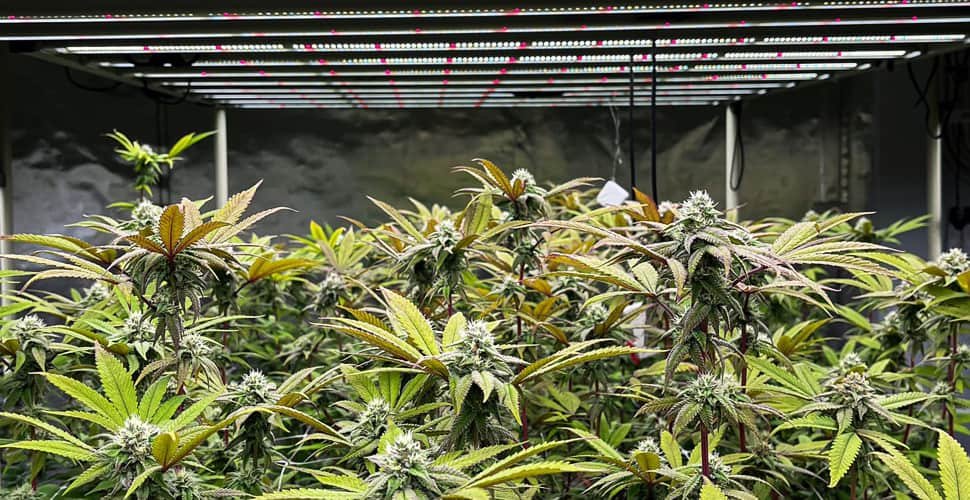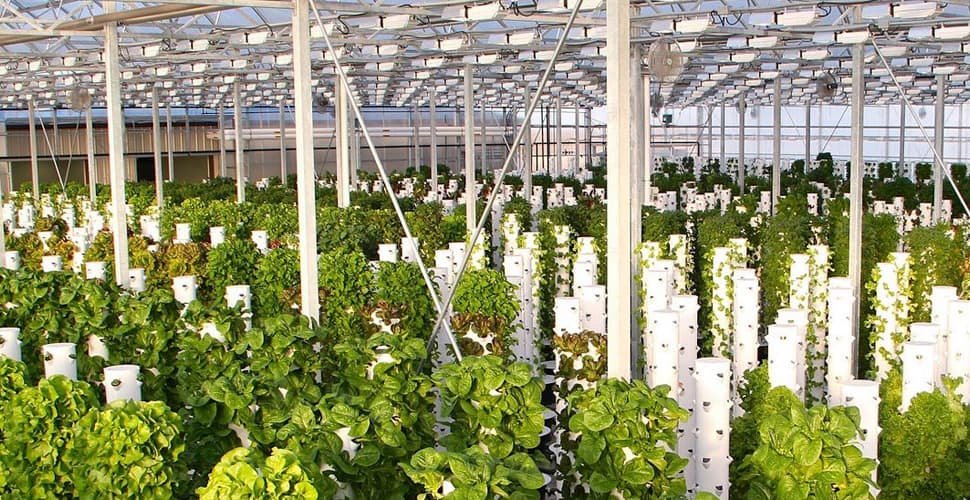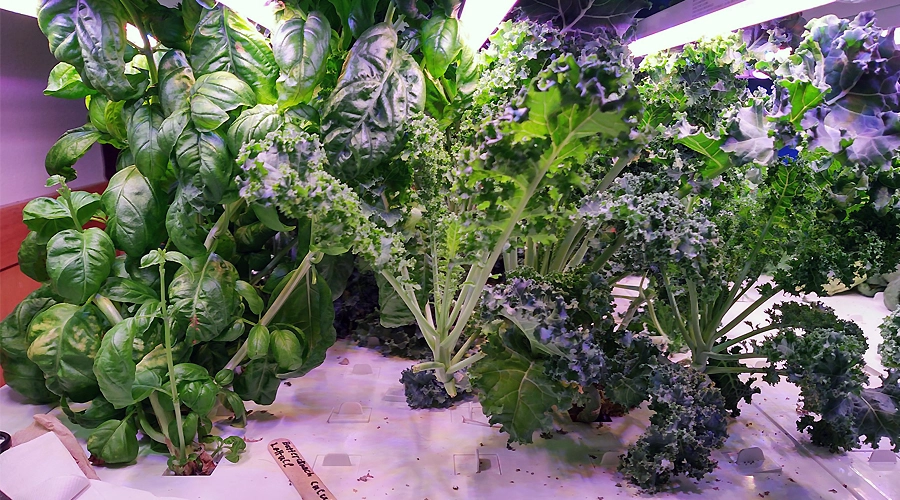Peki ya hastalığın ilerlemesini yavaşlatabilecek bir madde mevcut olsaydı? Alzheimer hastalığı, TSSB semptomlarını hafifletmek, kronik ağrıyı ve kemoterapinin yan etkilerini azaltmak ve hatta bazı kanserlerle mücadele etmek mi istiyorsunuz?
Tıbbi esrarın bir dizi hastalığı tedavi edebilme potansiyeli, hem araştırmacıların hem de hastaların ilgisini çekti.
Tıbbi esrar, semptomları ve hastalıkları tedavi etmek için Cannabis sativa bitkisinin ve kanabinoidlerinin kullanımını ifade eder. Yağlar, tentürler, haplar, topikal losyonlar ve yenilebilir yiyecekler dahil olmak üzere çeşitli formlarda gelir.
En çok bilinen kanabinoidler THC ve CBD'dir ancak kenevir bitkisinde 100'den fazla farklı kanabinoid vardır.
Tıbbi ot ne için kullanılır?
Tıbbi esrar epilepsi tedavisinde yardımcı olabilir. ParkinsonAlzheimer hastalığı, anksiyete, depresyon, gastrointestinal bozukluklar, çeşitli cilt lezyonları ve çeşitli kanser semptomları.
Daha fazla ülke veya bölge tıbbi esrarı yasallaştırdıkça, bilim adamları esrarın bileşenlerinin insan vücudu ve zihniyle nasıl etkileşime girdiğini araştırıyor.
Bazıları tıbbi esrarı zararlı bir ilaç olarak görürken, diğerleri onu doğal bir sağlık hizmeti olarak görüyor. Hem gizemli hem de tartışmalı.
Tıbbi esrarı da doğru bağlamına koyabileceğinizi umuyoruz.
Şifalı otlar ile Alzheimer, uykusuzluk, depresyon ve kanser arasındaki ilişkiye ve tıbbi esrarın faydalarının fizyolojik ve psikolojik etkilerine bakalım.
Esrar Alzheimer Hastalığına Yardımcı Olur mu?
Alzheimer’s disease (AD) has emerged as one of humanity’s most difficult health challenges.
This is a less-friendly neurodegenerative disease.
Its main symptoms are poor neuropsychiatric symptoms such as increasing memory loss, cognitive dysfunction, personality abnormalities, and language difficulties are the primary symptoms, all of which have a severe impact on social, occupational, and life activities.
According to the World Health Organization, about 47 million people worldwide are suffering from Alzheimer’s disease.
Alzheimer’s disease is on the rise and is estimated to affect 150 million people by 2050. That means that every three seconds, someone in the globe is diagnosed with Alzheimer’s disease.
Her gün 1000'den fazla yaşlı evlerinin yerini hatırlayamadıkları için hayatını kaybediyor, bu da 1000'den fazla ailenin ailelerini kaybetmenin üzüntüsünü yaşadığı anlamına geliyor.
Tıbbi Esrar Alzheimer'ı Tedavi Edebilir
Alzheimer hastalığı tedavi edilemese de tedavi edilebilir.
Evet, tıbbi esrar Alzheimer tedavisi için yeni bir umut sunuyor! Alzheimer ve Parkinson gibi nörodejeneratif hastalıklar için nöroprotektif ve tedavi edici potansiyele sahiptir.
Yeni umut, esrardaki kanabidiolün (CBD) serbest radikalleri etkisiz hale getirdiğinin ve beyin iltihabını ve antioksidanları azaltmaya yardımcı olabileceğinin gösterilmesidir.
University College London'daki demans araştırmacıları Alzheimer hastalığı üzerine bir çalışma yürüttüler. Araştırmaya göre Alzheimer hastalığının önemli bir özelliği, beyinde amiloid adı verilen bir protein kümesinin birikmesidir.
Esrarın CBD (kannabidiol) ve THC (tetrahidrokanabinol) bileşenlerinin, bu proteini laboratuvarda yetiştirilen sinir hücrelerinden uzaklaştırdığı görülmektedir.
THC ve CBD'nin farklı fakat tamamlayıcı etki mekanizmaları vardır. Her ikisi de inflamasyonu azaltarak, hastalığın ilerlemesini yavaşlatarak, davranışsal semptomları hafifleterek ve nöronları hasardan koruyarak Alzheimer hastalığı için terapötik faydalar sağlayabilir.
Esrarın CBD ve THC bileşenlerinin farklı etkileri vardır. THC yüksek bir his yaratır ancak aynı zamanda endokannabinoid sistemle de etkileşime girer.
CBD insanları sarhoş etmez ancak ağrı, kaygı ve iltihaplanma gibi semptomların azaltılmasına yardımcı olabilir. Optimum THC: CBD oranı tedavi edilen duruma bağlıdır.
Bu videoda doğu Massachusetts'te tıbbi esrarın kendilerine çok faydalı olduğunu bulan bir aile hakkında bilgi edinebiliriz.
THC Nasıl Çalışır?
THC esrardaki ana psikoaktif bileşiktir. Beyindeki ve vücuttaki CB1 ve CB2 kannabinoid reseptörlerini uyarır.
Bu reseptörler beyinde hafıza, duygu, uyku ve iştahta rol oynar. Alzheimer hastalığı olan kişilerde bu etkileşim kaygıyı azaltabilir, ruh halini artırabilir, rahatlamayı ve uykuyu teşvik edebilir ve ajitasyonu azaltabilir.
- THC'nin antiinflamatuar etkileri vardır ve Alzheimer hastalarının beyninde hastalığın ilerlemesine yol açan kronik inflamasyonun azaltılmasına yardımcı olur. Proinflamatuar sinyal moleküllerinin salınmasını engeller.
- THC iştahı uyarabilir ve hastaları yiyecek isteklerini artırmaya teşvik edebilir. Bu, yeme alışkanlıkları değişen veya iştah kaybı olan Alzheimer hastalarında kilo kaybını önlemeye yardımcı olabilir.
- THC, beta-amiloid plaklarının oluşumunu yavaşlatabilir. Bu plaklar Alzheimer hastasının beyninde birikir ve hücre iletişimini bozar. THC, beta-amiloid fragmanları üretmek için gereken bir enzimin bloke edilmesine yardımcı olabilir. Ancak bu etkiyi doğrulamak için daha fazla kanıta ihtiyaç vardır.
CBD Vücutta Nasıl Çalışır?
CBD, Alzheimer hastalığına şifa vaadi veren, psikoaktif olmayan bir kimyasaldır.
- Güçlü antiinflamatuar etki. Enflamasyon hastalığın gelişimini tetikler. Ve CBD, pro-inflamatuar aracıları bloke ederek ve anti-inflamatuar aracıları teşvik ederek iltihabı azaltır.
- Antioksidan etkiler. CBD, oksidatif strese karşı koruma sağlayan bir antioksidandır. Alzheimer'lı beyinde artan oksidatif hasar, hücresel hasara ve ölüme neden olur.
- Anksiyolitik etki. Ruh hali ve streste önemli olan 5-hidroksitriptamin reseptörlerini uyarır. Hastaları rahatlatmaya yardımcı olabilir’ kaygı ve huzursuzluk.
- Uykuyu iyileştirir. CBD, uyku kalitesini ve süresini iyileştirebilir ve Alzheimer hastalığı olan kişilerde gece huzursuzluğunun azaltılmasına yardımcı olabilir.
- Hastalığın ilerlemesini geciktirmek. CBD, beta-amiloid plaklarının oluşumunu engelleyerek ve nöronların zarar görmesini önleyerek Alzheimer hastalığının ilerlemesini yavaşlatabilir veya durdurabilir.
THC ve CBD'ye ek olarak, CBG ve CBC, esrarda bulunan ve Alzheimer hastalığının çeşitli şekillerde tedavisine yardımcı olabilecek psikoaktif olmayan kanabinoidlerdir.
CBG, beynin hafıza oluşumu ve sağlamlaştırılmasından sorumlu bölgesi olan hipokampusta yeni sinir kök hücrelerinin büyümesini uyarır; bu, mevcut sinir yollarının korunmasına ve potansiyel olarak yeni bağlantılar oluşturulmasına yardımcı olabilir. Alzheimer hastalığında hipokampal hücrelerin dejenerasyonunu önlemeye yardımcı olur.
CBC, beyindeki ruh hali düzenlemesi ve stres tepkisi ile ilgili serotonin reseptörlerinin sinyallerini artırarak bir antidepresan olarak çalışır. Bu, depresyon semptomlarını hafifletmeye ve Alzheimer hastalarında sıklıkla görülen ruh hali değişikliklerini iyileştirmeye yardımcı olabilir.
Dünyanın Tıbbi Esrar Araştırmalarını Hızlandırması Gerekiyor
Çin'in Pekin Tıp Üniversitesi, Xuanwu Hastanesi'nde Jia Jianping'in ekibi tarafından yazılan yakın tarihli bir makale, klinik olarak Alzheimer hastası olduğu teşhis edilen 19 yaşındaki bir erkek çocuk hakkındadır.
Lise yıllarında derslerine odaklanmakta zorlanan hasta, daha sonra ciddi kısa süreli hafıza bozuklukları yaşamaya başladı. Sonunda eğitimini tamamlayamadı ve okulu bırakmak zorunda kaldı.
Alzheimer hastalığı artık sadece yaşlılarla sınırlı olmayabilir. Gençlerin de aynı şekilde dikkatli olması gerekiyor.
Alzheimer hastalarıyla ilgilenmek ve onların kalan tek anılarını korumak, yapmak için sabırsızlandığımız bir seçim.
Bununla birlikte, esrar yasa ve düzenlemeleri eyaletten eyalete büyük farklılıklar göstermektedir ve esrar hala kontrollü bir madde olarak sınıflandırılmaktadır.
Sonuç olarak, farklı eyaletler esrarın tıbbi kullanımına ilişkin araştırmalarda düzenleyici engellerle karşı karşıya kaldı ve bu durum onların tıbbi esrarı tedavi edici bir seçenek olarak kullanmalarını engelledi.
Birçok araştırmacı bu sınıflandırmanın tıbbi keşifleri engellediğine inanıyor.
Esrarı yeniden sınıflandırmak veya suç olmaktan çıkarmak için büyüyen bir hareket var ve daha fazla standardizasyon, araştırmayı ve sorumlu düzenlemeyi kolaylaştıracaktır.

Esrar Uyumanıza Yardımcı Olur mu?
Yaşlılarda uyku sorunları nüfusun yaklaşık @'ını etkileyen yaygın bir sorundur.
Reçeteli uyku AIDS ve opioidler insanların uykuya dalmasına yardımcı olsa da, bunlar aynı zamanda bir takım olumsuz yan etkilere de neden olabilir. Opioid bağımlılığı yaşlı hastalar arasında büyüyen bir endişedir ve birçoğu bağımlılık yapıcı özelliklerine yenik düşmektedir.
Yaşlılarımız için daha doğal ilaç seçenekleri olabilir. Tıbbi esrar yaşlıların uykusunu iyileştirebilir.
Doktorlar hastalara ağrı kesici veriyor ama esrar onları aşırı dozdan kurtarıyor.
Esrar bazlı uyku ilaçlarının en faydalı yönü, yaşlı hastaları reçeteli uyku yardımcıları ve opioidlere bağımlılıktan kurtarabilmeleridir. Esrarın yaşlılara nasıl yardımcı olabileceğine bakalım.
Esrardaki THC ve CBD'nin, insan sisteminde bulunan geniş bir reseptör ağı olan insan endokannabinoid sistemi (ECS) üzerinde ilginç etkileri vardır. Kanabinoidler bu reseptörlere bağlandığından hastalar kannabinoidlerin birçok etkisine maruz kalır.
Esrarın yüksek tetrahidrokanabinol içeriği, hastaların bir rüya döngüsü olan REM (hızlı göz hareketi) uykusunda daha az zaman geçirmesine neden olur.
Bu sadece uyumakta zorluk çeken yaşlılar için değil, aynı zamanda kronik ağrı veya travma sonrası stres bozukluğu çeken gençler için de faydalıdır. Esrar uyku ile ilgili sorunlara yardımcı olabilir.
Sıcak İpuçları
Ölçülü miktarda esrarın, özellikle kısa vadede, bazı makul uyku teşvik edici etkileri olabilir.
Esrar uykuya dalmayı kolaylaştırabilirken, kalıcı sakinleştirici etkileri nedeniyle gün içindeki üretkenliği etkileyebilir.
Ancak bağımlılık, tolerans ve yan etki riskleri nedeniyle esrarın uykuyu teşvik etmek amacıyla uzun süreli veya yoğun kullanımı tıbbi olarak önerilmemektedir.
Kronik uykusuzluk için, tıbbi esrar seçeneklerini keşfetmeden ve esrarı izinsiz almamadan önce, ilk önce geleneksel tedavi ve tıbbi tavsiyelere uyulmalıdır.
Tıbbi esrarın kronik ağrıdaki rolünü anlatan aşağıdaki videoya bir göz atalım.
Esrar Anksiyete ve Depresyona Yardımcı Olur mu?
Yukarıda, depresyon semptomlarını hafifletme ve Alzheimer hastalarında sıklıkla meydana gelen ruh hali değişikliklerini iyileştirme yeteneği nedeniyle esrarın Alzheimer için bir miktar olumlu olduğu gerçeğinden bahsetmiştik.
Esrardaki CBD'nin anksiyolitik etkilere sahip olduğu gösterilmiştir. Beynin anksiyete düzenlemesinde yer alan limbik ve parietal bölgelerini etkileyerek etki gösterebilir.
Esrardaki THC ayrıca dopamin düzeylerini yükselterek ruh halini geçici olarak yükseltebilir ve olumsuz duyguları hafifletebilir. Kısa süreli, düşük dozlu tedavi bazı insanlar için yararlı olabilir.
Tom adında bir gazi, savaş sırasında yaşadığı travma sonrası stres bozukluğundan ve uykusuzluktan muzdariptir. Esrarın, özellikle de yüksek CBD türlerinin kaygısını hafifletmeye yardımcı olduğunu ve gece boyunca kabus görmeden uyuyabilmesini sağladığını buldu. THC açısından zengin türler kaygısını ve semptomlarını şiddetlendirme eğiliminde olduğundan bunlardan kaçınıyor.
Natalie adlı genç bir kadına, ergenlik çağında sosyal anksiyete bozukluğu ve depresyon tanısı konuldu. Geleneksel antidepresanlardan rahatlama bulamadı. Şimdi 20'li yaşlarında, alternatif bir tedavi olarak tıbbi esrar kullanıyor ve bunun hem kaygısı hem de ruh hali için çok etkili olduğunu düşünüyor. Dengeli bir THC/CBD yağı kullanıyor ve minimum yan etkiyle daha sakin ve daha pozitif hissetmesine yardımcı oluyor.
Alice adında yaşlı bir kadın, 50 yıllık eşini kaybetmenin acısını yaşıyordu. İştahsızlık, depresyon ve uykusuzlukla mücadele ediyordu ve doktoru sağlığının kötüleşmesinden endişe ediyordu. Alice, doktorunun tavsiyesi üzerine tıbbi esrarı denedi. Bunun iştahını artırmaya yardımcı olduğunu, ruh halini iyileştirdiğini ve geceleri daha iyi uyumasına olanak sağladığını buldu. Esrar onu rahatlattı ve yas süreciyle başa çıkmasına yardımcı oldu. Sonuç olarak sağlığı stabil hale geldi.
Sıcak İpuçları
Bunlar gerçek hayattaki birçok vakadan sadece birkaçı. Esrar otu, geleneksel tedavilerin işe yaramadığı veya çok fazla yan etkiye neden olduğu bazı insanlara umut ve rahatlama sağladı.
Yüksek dozda THC, kaygının ve duygudurum belirtilerinin kötüleşmesine neden olabilir. Ve CBD bu olumsuz etkilerin dengelenmesine yardımcı olabilir. Ancak anksiyete ve depresyon için yüksek THC ve düşük CBD esrar türlerinden genel olarak kaçınılmalıdır.

Esrar Kanseri Tedavi Ediyor mu?
Bazı çalışmalar, bazı kannabinoidlerin anti-tümör etkileri olabileceğini öne sürmektedir. THC ve CBD'nin belirli kanser hücresi türlerinde apoptozu (programlanmış hücre ölümü) indüklediği gösterilmiştir. Bu, antitümör etkilere sahip olabilecekleri anlamına gelir.
Kanabinoidlerin anti-anjiyogenik etkileri olabilir, bu da tümör büyümesi için gerekli olan yeni kan damarlarının oluşumunu engelledikleri anlamına gelir. Bu potansiyel olarak kanserin büyümesini yavaşlatabilir veya engelleyebilir.
Şimdilik esrarın kanseri tedavi edebileceğine dair kesin bir kanıt yok. Ancak kanser hastalarının kanserle daha iyi savaşmasına yardımcı olabilir.
Kemoterapiden kaynaklanan mide bulantısını azaltın. Kemoterapi sıklıkla şiddetli bulantı ve kusmaya neden olabilir. THC açısından zengin tıbbi esrar türleri bulantı önleyici özelliklere sahiptir.
Rob adında Floridalı bir adam akciğer kanseri nedeniyle kemoterapi görüyordu. Bulantı önleyici ilaçlar ona yardımcı olmadı ve 20 kilo verdi. Tıbbi esrar kullanmaya başladığında mide bulantısı geçti, tekrar kilo aldı ve kemoterapiyi tamamlayabildi.
Geliştirilmiş iştah. Kanser tedavisi sıklıkla iştah kaybına ve kas atrofisine yol açar. Tıbbi esrar iştahı artırabilir ve dramatik kilo kaybını önleyebilir.
Teksas'tan Maria adında bir kadın meme kanserine yakalandı ve iştahsızlık nedeniyle kemoterapi sırasında 120 kilodan 90 kiloya düştü. Tıbbi esrarla iştahı normale döndü ve sağlıklı kilosunu koruyarak tolere etmesine ve tedaviyi tamamlamasına yardımcı oldu.
Kansere bağlı ağrıyı azaltır. Tıbbi esrar, kanserin kendisinden kaynaklanan kronik ağrının hafifletilmesine yardımcı olabilir ve ameliyat veya diğer tedavilerden kaynaklanan sinir ağrıları da endikedir.
Kaliforniya'dan Tim adındaki bir adamın, kemiklerine yayılan ve aşırı ağrıya neden olan prostat kanseri vardı. Opioidler işe yaramadı ve yan etkiler yarattı. Tıbbi esrar yenilebilirleri kanser ağrısını yaklaşık ` oranında azaltmaya yardımcı oldu ve gece boyunca tekrar uyuyabilmesi için ona rahatlama sağladı.
Sıcak İpuçları
Kanserin etkileri ve sert tedavileriyle mücadele eden birçok kanser hastası için tıbbi esrar, güvenli ve doğal bir şekilde rahatlama sağlayabilir ve yaşam kalitesini arttırabilir.
Bazı çalışmalar tıbbi esrarın belirli kanserler için kemoterapi ve radyasyon tedavisinin etkinliğini artırabildiğini göstermiştir. Ancak insanlar üzerinde daha titiz çalışmalara acilen ihtiyaç vardır.
Tıbbi esrar umut veriyor. Doktorların desteğiyle kanser hastaları için şefkatli bir tedavi seçeneği olarak değerlendirilmeye değer.
Özet
Endokannabinoid sistem, vücut ve zihin arasında bir köprü görevi görür ve esrardan elde edilen kanabinoidler bu sistemi etkiler.
Tıbbi esrarın Alzheimer hastalığı, depresyon, kanser tedavisi ve Parkinson hastalığına olumlu katkıları olmuştur ve başka alanlarda da denenebilir.
Nationwide Çocuk Hastanesi'ndeki araştırmalar, esrar özlerinin epilepsi için son derece etkili olabileceğini gösteriyor. Tıbbi esrar aynı zamanda otizmli çocukların gülümsemesini de geri getirebilir.
Gelecek umut verici görünüyor ve tıbbi esrarın olanakları sonsuzdur. Ancak dikkatli ilerlememiz gerekiyor ve doğru tıbbi rehberlik tedavinin anahtarıdır.
Jayes
AUXGROW'da Dijital Pazarlama Müdürü olan Jayes, hidrofonik sistemlere olan tutkusunu LED bitki yetiştirme lambaları konusundaki uzmanlığıyla birleştiriyor. Jayes, uygulamalı deneyimi ve derin anlayışıyla, sürdürülebilir tarım dünyasında size rehberlik ediyor.






